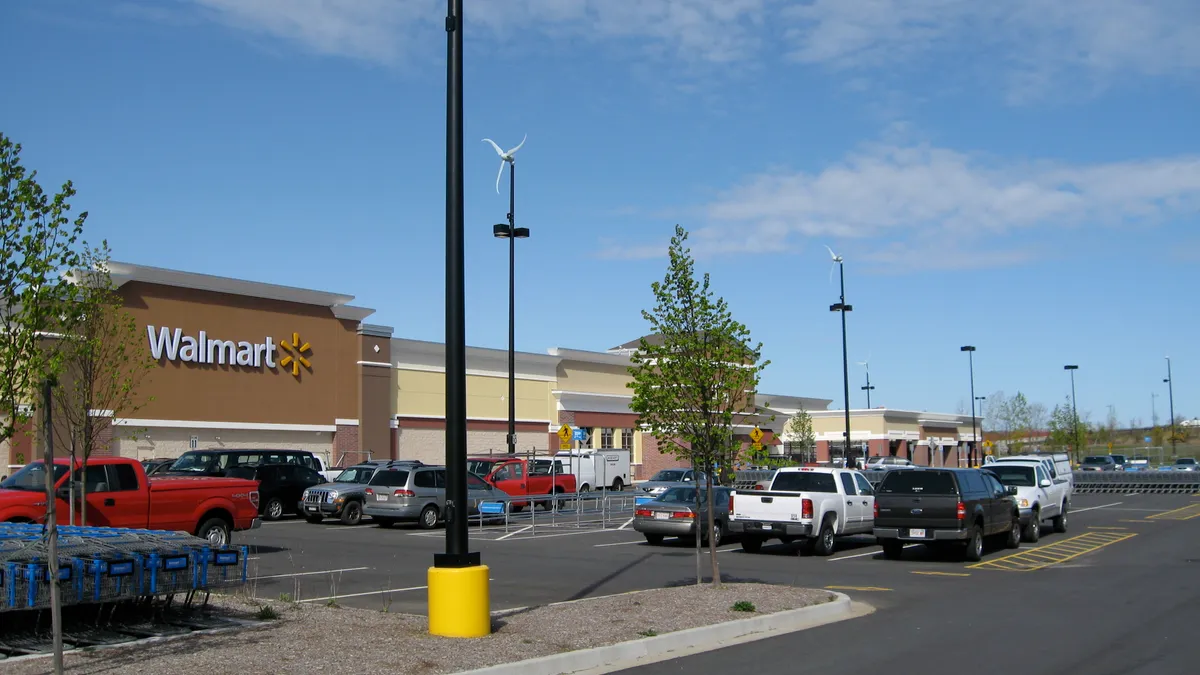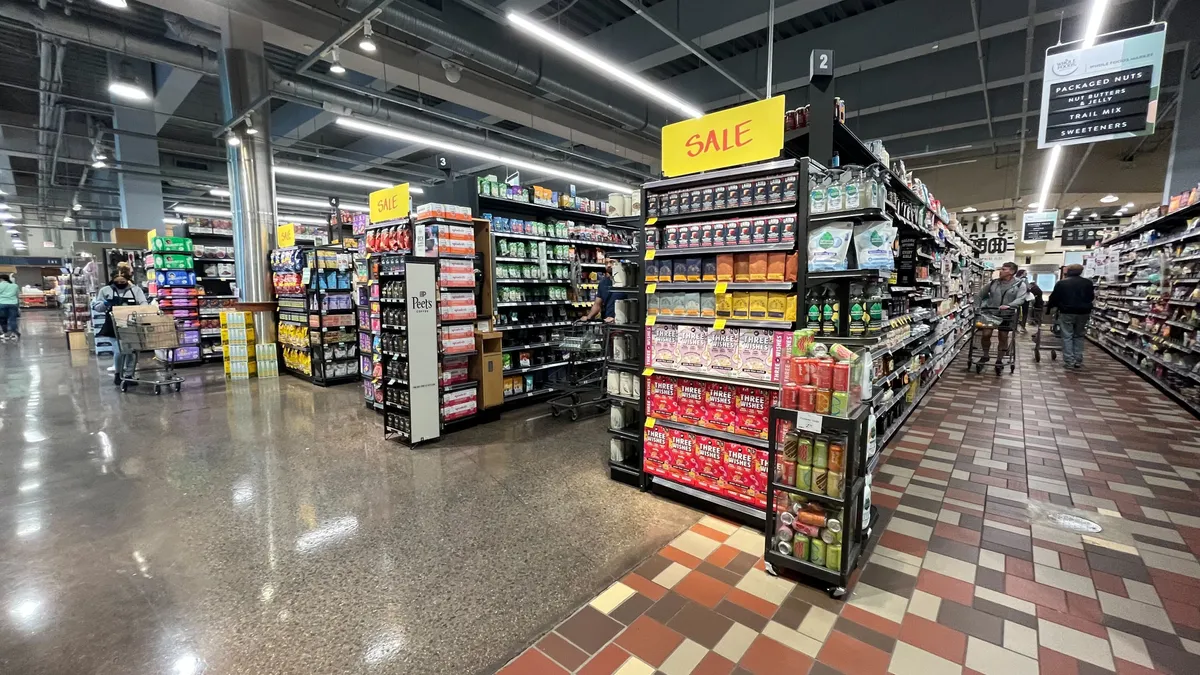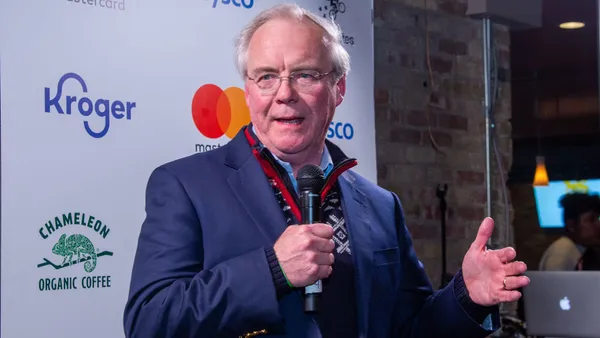Dive Brief:
- Walmart was able to reduce its scope one and two emissions (which cover its own operations) by 6.1% in 2017 compared to 2015 levels and is on track, along with its suppliers, to reduce its emissions by 1 billion metric tons by 2030, the retailer said in its first Environmental, Social & Governance Report released Wednesday.
- Supplier participation in the company's Sustainability Index, a measure of the sustainability performance of different consumer goods, now covers 80% of the goods the company sells in stores.
- Walmart plans to reduce its scope one and two emissions by 18% compared to 2015 levels by 2025 — the company says it is on track to make this happen. This will be done by making its fleets more fuel-efficient, improving its refrigeration systems and powering 50% of its operations with renewable energy by 2025, the report said.
Dive Insight:
Walmart's emissions levels place it well above its U.S. competitors in terms of scope one and two emissions, according to a previous analysis by Supply Chain Dive. But efforts like Project Gigaton likely resulted in Walmart receiving a 2018 climate change score of "A-" from the Carbon Disclosure Project, despite its high emissions.
"Walmart has been reporting on a wide range of ESG topics since 2005," the report said. Today's report is Walmart's first ESG report, a response to "stakeholder requests for a more concise and focused view of our priority topics." The act of disclosing detailed information on sustainability leads to greater transparency and accountability and often helps in meeting goals.
Since supply chains are often a large contributor to company emissions, retailers have realized the importance of collaborating with suppliers to boost sustainability.
So far, 1,000 suppliers have signed on to participate in Walmart's Project Gigaton — the official name for the company's effort to reduce emissions in its value chain by 1 billion metric tons by 2030.
"In the coming year, we plan to focus on attracting additional suppliers and broadening the scope of initiatives across programmatic areas," the report reads.
Currently, 80% of avoided emissions reported by suppliers are the result of efforts to reduce energy use and/or switching to renewable energy sources.
Fewer suppliers, however, have made commitments related to deforestation and sustainable agriculture, Walmart said. The retailer said it is increasingly using technology and more "innovative sourcing strategies" to ensure its suppliers aren't connected to deforestation. Walmart works with suppliers to encourage practices like manure management and fertilizer optimization.
Additional efforts include working with suppliers on product designs that reduce the end user's footprint and the 20x25 initiative, which is the company's goal of sourcing 20 commodities more sustainably by 2025. These commodities fall into areas including produce, animal agriculture, textiles and seafood.















